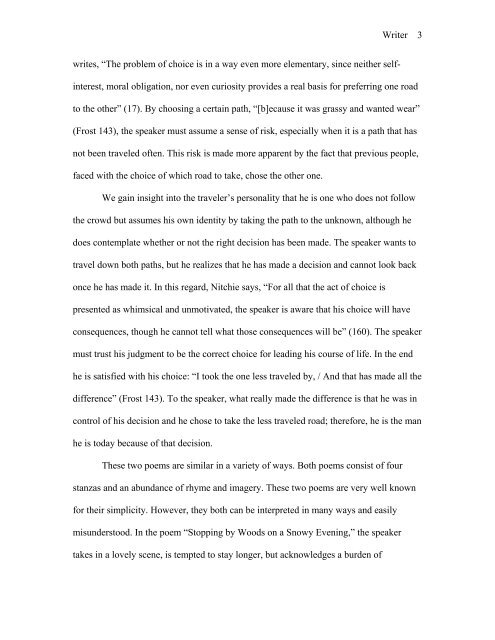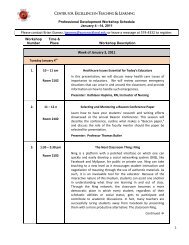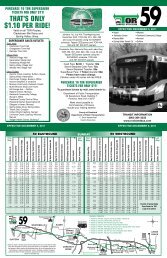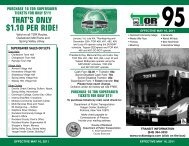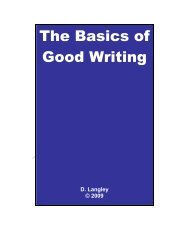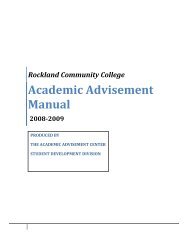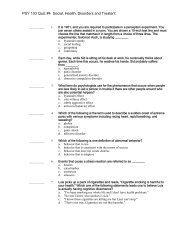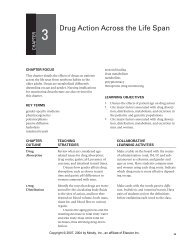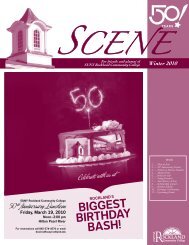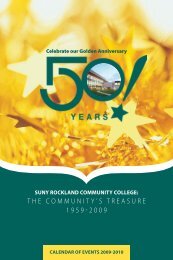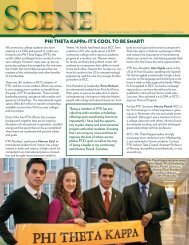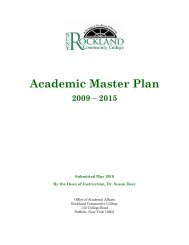You also want an ePaper? Increase the reach of your titles
YUMPU automatically turns print PDFs into web optimized ePapers that Google loves.
Writer 3<br />
writes, “The problem of choice is in a way even more elementary, since neither selfinterest,<br />
moral obligation, nor even curiosity provides a real basis for preferring one road<br />
to the other” (17). By choosing a certain path, “[b]ecause it was grassy and wanted wear”<br />
(Frost 143), the speaker must assume a sense of risk, especially when it is a path that has<br />
not been traveled often. This risk is made more apparent by the fact that previous people,<br />
faced with the choice of which road to take, chose the other one.<br />
We gain insight into the traveler’s personality that he is one who does not follow<br />
the crowd but assumes his own identity by taking the path to the unknown, although he<br />
does contemplate whether or not the right decision has been made. The speaker wants to<br />
travel down both paths, but he realizes that he has made a decision and cannot look back<br />
once he has made it. In this regard, Nitchie says, “For all that the act of choice is<br />
presented as whimsical and unmotivated, the speaker is aware that his choice will have<br />
consequences, though he cannot tell what those consequences will be” (160). The speaker<br />
must trust his judgment to be the correct choice for leading his course of life. In the end<br />
he is satisfied with his choice: “I took the one less traveled by, / And that has made all the<br />
difference” (Frost 143). To the speaker, what really made the difference is that he was in<br />
control of his decision and he chose to take the less traveled road; therefore, he is the man<br />
he is today because of that decision.<br />
These two poems are similar in a variety of ways. Both poems consist of four<br />
stanzas and an abundance of rhyme and imagery. These two poems are very well known<br />
for their simplicity. However, they both can be interpreted in many ways and easily<br />
misunderstood. In the poem “Stopping by Woods on a Snowy Evening,” the speaker<br />
takes in a lovely scene, is tempted to stay longer, but acknowledges a burden of


